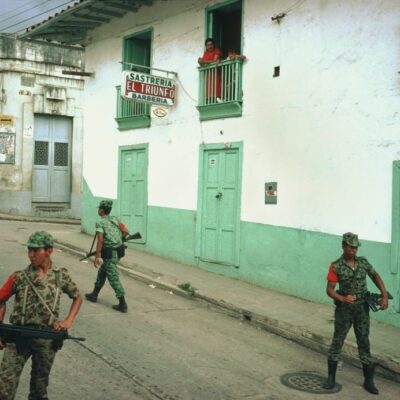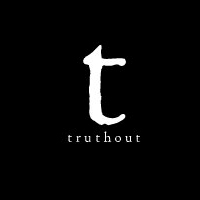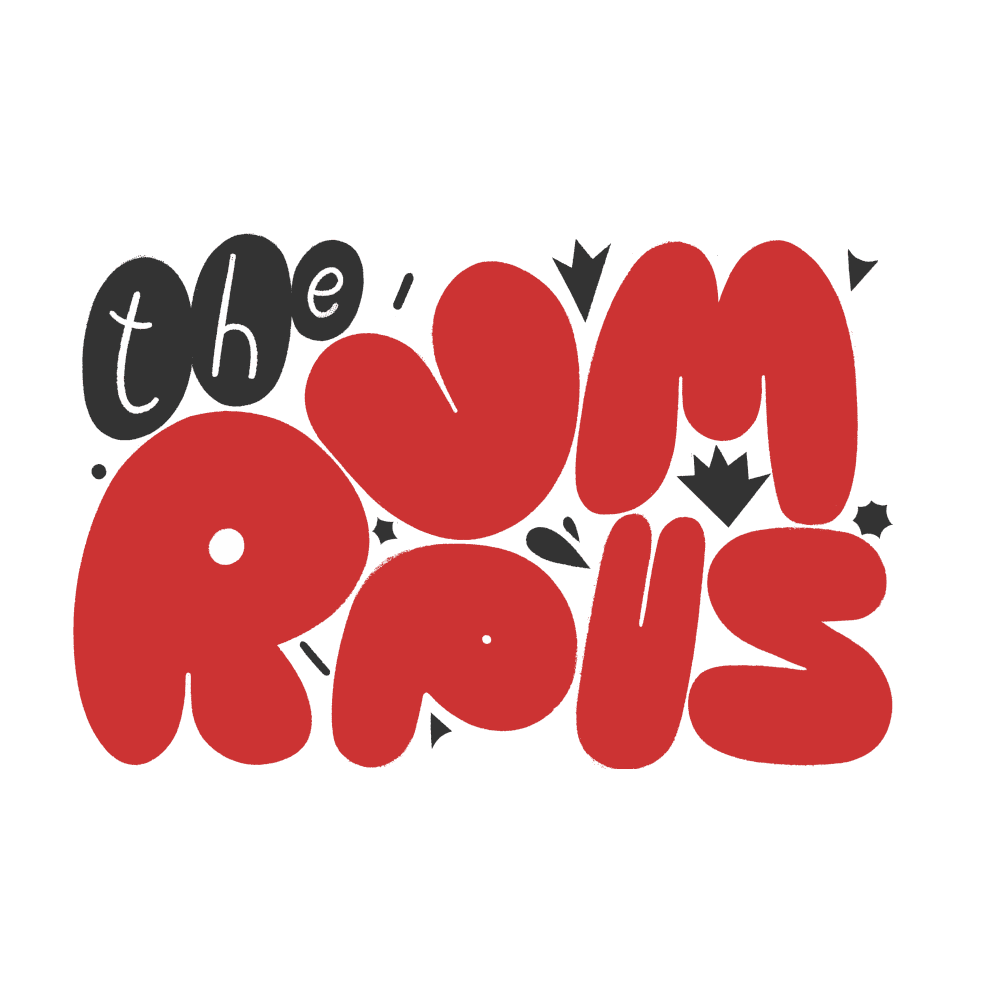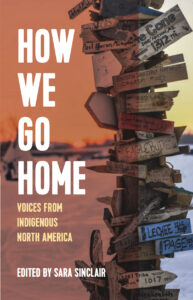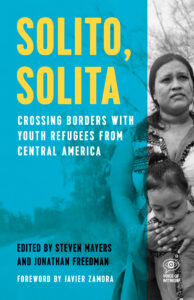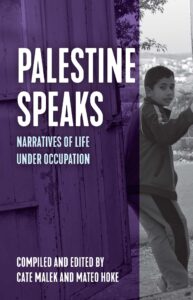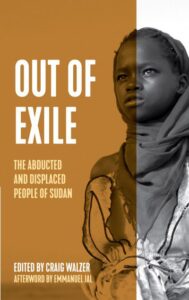About the Book
Since 1964, Colombia has been embroiled in internal armed conflict among guerrilla groups, paramilitary militias, and the country’s own military. Civilians in Colombia face a range of abuses from all sides, including killings, disappearances and rape—and more than four million have been forced to flee their homes. The oral histories in Throwing Stones at the Moon describe the most widespread of Colombia’s human rights crises: forced displacement. Speakers recount life before displacement, the reasons for their flight, and their struggle to rebuild their lives.
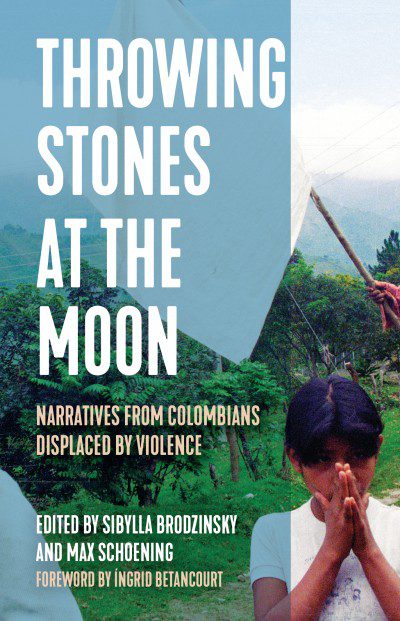
Narrators Include:
MARIA VICTORIA, whose fight against corruption as a hospital union leader led to a brutal attempt on her life. In 2009, assassins tracked her to her home and stabbed her seven times in the face and chest. Since the attack, Julia has undergone eight facial reconstructive surgeries, and continues to live in hiding.
DANNY, who who at eighteen joined a right-wing paramilitary’s training camp. Initially lured by the promise of quick money, Danny soon realized his mistake and escaped to Ecuador. He describes his harrowing escape and his struggle to survive as a refugee with two young children to support.
About the Editors & Foreword Author:
Sibylla Brodzinsky is a freelance journalist who has spent more than twenty years writing about Latin American politics, human rights, and social issues. She is based in Colombia and contributes regularly to the Economist, the Christian Science Monitor, and the Guardian.
Max Schoening is the Colombia researcher for Human Rights Watch. He has written extensively about human rights issues in Colombia, including forced displacement, transitional justice, and abuses against Afro-Colombians.
Ingrid Betancourt is a Colombian politician, former senator and anti-corruption activist. Betancourt was kidnapped by the Revolutionary Armed Forces of Colombia (FARC) in 2002 and was rescued by Colombian security forces six and a half years later in 2008. She has since continued her activism work and has written a memoir about her experience.
Praise for Throwing Stones at the Moon:
Brodzinsky and Schoening convey these people’s tender and bitter stories, of resilience and loss, of cruelty and solidarity, in their own full voices. Stories that don’t end with an act of violence, but that call out for compassion, and for justice.
John Lindsay-Poland
Director for Latin America and the Caribbean of the Fellowship for Reconciliation
The truth about the endless violence that has driven four million Colombians from their homes is, beyond doubt, one of the greatest untold stories of our generation. We are indebted to the editors of Throwing Stones at the Moon: Narratives from Colombians Displaced by Violence for recording the courageous stories of survivors across this beautiful and deeply troubled country. May their invaluable testimonies get the attention they deserve, and thus break the silence.
Jan Egeland
Former UN Under Secretary General and Envoy to Colombia
This project was made possible in part by the National Endowment for the Arts.
Related Resources

View the Lesson Plans
The lessons use oral history to promote a nuanced understanding of Colombians displaced by violence.
Book Club Discussion Questions
Use these questions to encourage meaningful discussions about the book.